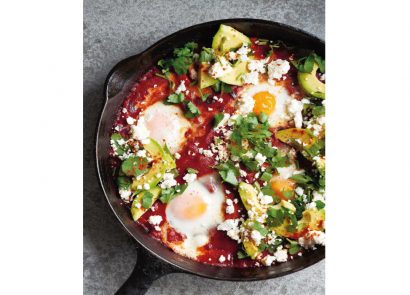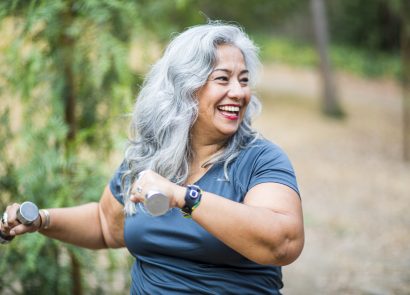While our skincare routine plays a big part in a good complexion, a nutrient-packed diet is needed to maintain healthy skin from the inside out, as nutritionist Rick Hay explains…
Vitamin E
This vitamin is an antioxidant, anti-inflammatory and absorbs energy from UV light, preventing free radical damage to the skin. It helps minimise fine lines, wrinkles and sagging. It also works together with vitamin C to strengthen cell walls.
Vitamin A
Vitamin A encourages skin cell production by stimulating fibroblasts in the deep layers of your skin – these are the cells responsible for keeping skin firm and healthy. It helps prevent sun damage by interrupting the process that breaks down collagen. Without vitamin A, you’d end up with dry, itchy, bumpy skin.
Vitamin C
This potent antioxidant can help repair damaged skin cells and your skin’s natural regeneration process. Low levels of vitamin C can cause your body to bruise easily and slow down the healing of scars and sores. Vitamin C also increases healthy collagen levels in your skin, making it smoother and tighter.
Collagen
Collagen is responsible for skin elasticity, and plays an important role in joint and bone health. Although certain foods contain collagen, those who want smoother skin might need to look into supplements to increase intake. Your body turns collagen you eat into amino acids, which maintain skin’s hydration, texture and resilience.
Zinc
This mineral helps your skin heal after an injury and is needed to keep cell walls stable. Zinc may protect your skin from UV damage because of the way it behaves in relation to other metals in your body, like iron and copper. A symptom of too little zinc is an itchy rash that looks like eczema, but that doesn’t get better when you put moisturisers on it.
Omega 3
Omega 3 fatty acids are fats that your body can’t make, but needs to build cell walls. Besides helping your brain to function properly, they benefit the skin by regulating oil production to boost hydration and delaying the skin’s ageing process. Algal oil is a good alternative to fish oil for vegans.
Biotin
Your body needs biotin to help convert certain nutrients into energy. It works synergistically with pantothenic acid to strengthen hair, increase nail thickness and prevent split ends and thinning hair. Signs of biotin deficiency include skin rashes, hair loss, and brittle nails.
Selenium
Selenium helps antioxidants, such as vitamin E, to protect your skin from damaging UV rays. Selenium works with vitamin E to safeguard cell membranes, the protective coating around cells. A deficiency has been linked with a greater chance of skin cancer.
Add these to your plate
- Fatty fish (such as salmon and sardines) for protein, omega 3 and selenium
- Nuts for healthy fats, vitamin E, zinc, selenium and biotin
- Organic eggs for protein, vitamins A and E, selenium and zinc
- Flaxseed for omega 3 and selenium
- Legumes (such as lentils and chickpeas) for protein and zinc
- Avocados for healthy fats and vitamins C and E
- Extra virgin olive oil for healthy fats and vitamin E
- Organic liver for biotin and vitamin A
- Citrus fruits for vitamin C
- Leafy greens (including kale, spinach) for vitamins A, C and E



















